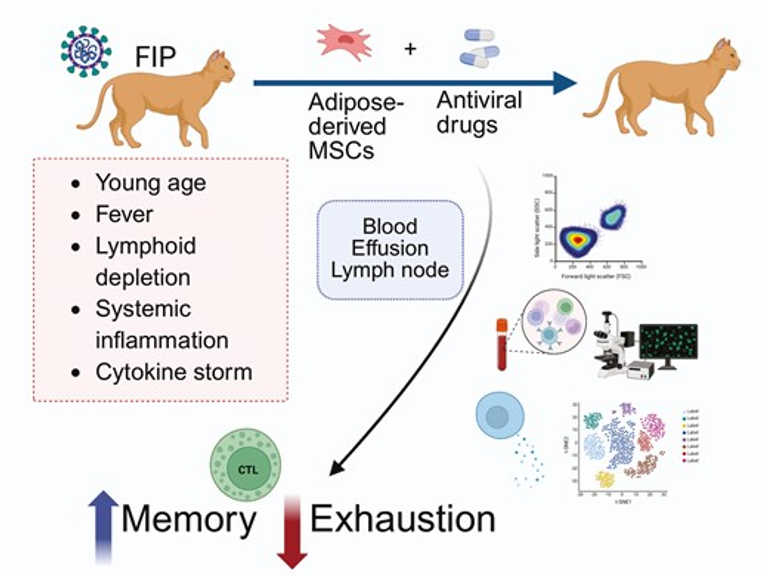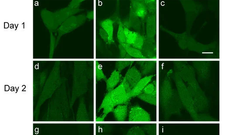ABSTRACT
Severe coronavirus infections, including SARS-CoV-2, are marked by systemic inflammation, T-cell exhaustion, lymphopenia, and chronic immune dysfunction, with limited therapeutic options for recovery. Feline infectious peritonitis (FIP), a naturally occurring feline coronavirus infection, mirrors these immune pathologies, providing a valuable translational model. This study evaluated the safety and efficacy of allogeneic mesenchymal stem/stromal cell (MSC) therapy combined with antiviral treatment in cats with effusive FIP. Hematologic, virologic, and immunologic analyses were conducted over 12 weeks. Antiviral therapy reduced cytotoxic T-cell exhaustion by downregulating inhibitory receptors PD-1, TIM-3, and LAG-3. MSC-treated cats demonstrated enhanced immune recovery, evidenced by reduced expression of exhaustion-related transcription factors (IKZF2, ZEB2, PRDM1) and increased regulatory T-cell populations, promoting immune homeostasis. Single-cell RNA sequencing of mesenteric lymph nodes revealed transcriptomic shifts indicative of immune rejuvenation, including elevated memory T-cell markers (IKZF1, GZMK, IL7R) and reduced hyperproliferative lymphocyte subsets. Serum cytokine analysis revealed 3 distinct inflammatory mediator patterns using principal component analysis. Both treatment groups showed transitions toward cytokine profiles resembling those of healthy controls. Notably, residual cytokine elevations persisted at the study’s end, mirroring features of chronic immune dysregulation. PDGF-bb, a marker of tissue repair, was uniquely associated with higher lymphocyte counts, suggesting its role in lymphoid recovery. This study highlights the potential of MSC therapy to modulate immune dysfunction and support durable immune recovery. The findings underscore its translational relevance for addressing severe viral diseases characterized by chronic inflammation and immune dysregulation, advancing both veterinary and human medicine.


